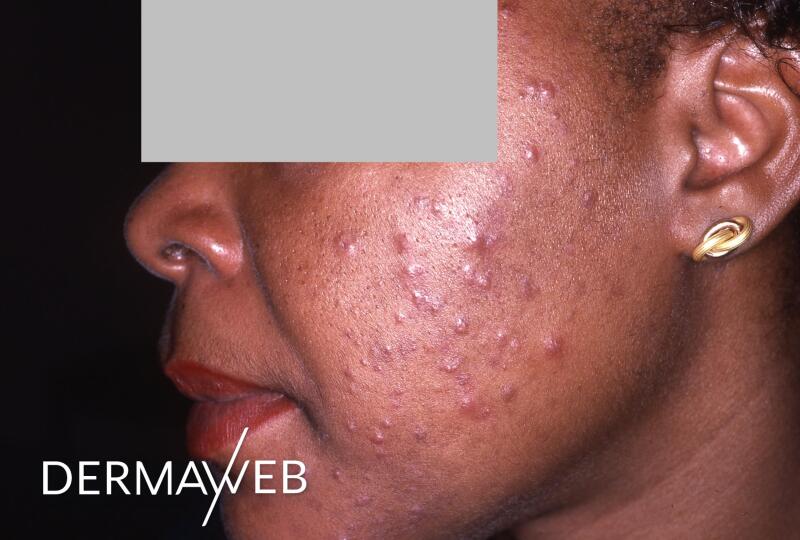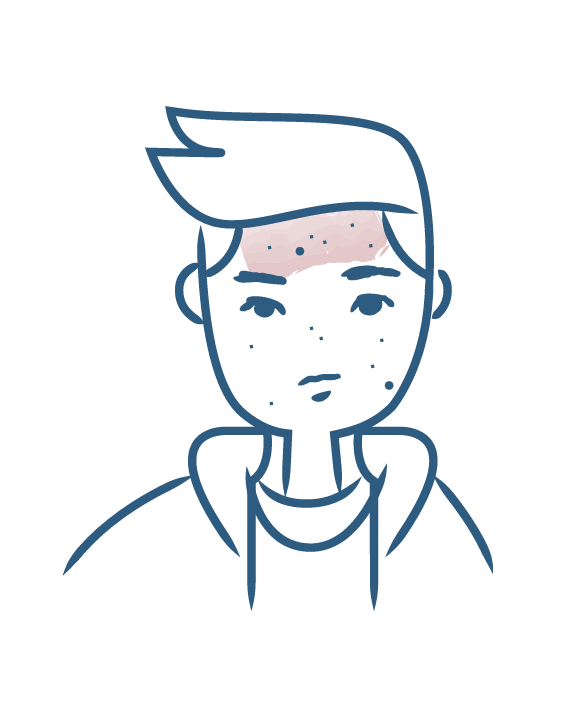-
Your concerns
Our articles to help you gain a better understanding
-
Our solutions
-
Ducray Dermatological laboratories
Our articles to help you gain a better understanding

Nodular acne is also called nodulocystic acne or acne conglobata.
Approximately 15% of acne sufferers have a severe form of the disease. Among them, some develop nodulocystic acne, a chronic and severe form of acne that remains relatively unknown to the general public.
Nodular acne occurs more often in boys than girls, and more often in people with a family history of severe acne.
Nodular acne appears on the face like most acne types but often extends to other areas of the body: back, chest, shoulders, buttocks, etc.
Nodules are the most typical spots of this type of acne. They are red and more than 5 mm in diameter, although several types of lesions coexist in nodular acne: retentional lesions consist of large blackheads that may sometimes combine; inflammatory lesions include pustules (red spots less than 5 mm in diameter), nodules, cysts or abscesses. This all results in a high risk of scarring.
Acne nodules are often painful and tender. Nodular acne lesions are highly visible and unattractive, and can lead to isolation and withdrawal. In middle school, high school or college, other students may think the condition is caused by a contagious disease or a lack of care, when this is absolutely not the case.
The treatment of nodulocystic acne largely centers on oral retinoids. This type of medication is highly effective but particularly aggressive. What’s more, it often causes the skin and mucous membrane to dry out. Daily measures must be adopted to combat dryness, including sun protection, gentle hygiene practices, hydrating of the skin and lips and the use of eye lubricants in the event of dry eyes.
Finally, if you experience issues at school, are afraid of other people staring or of feeling forced to avoid social interaction, you should go ahead and talk about it with your family and friends or with a health professional.
Oily or acne-prone skin

Oily or acne-prone skin
NEWSLETTER
Dermatological expertise
To better understand your skin and hair, discover our exclusive content and innovative care products designed to improve your quality of life..